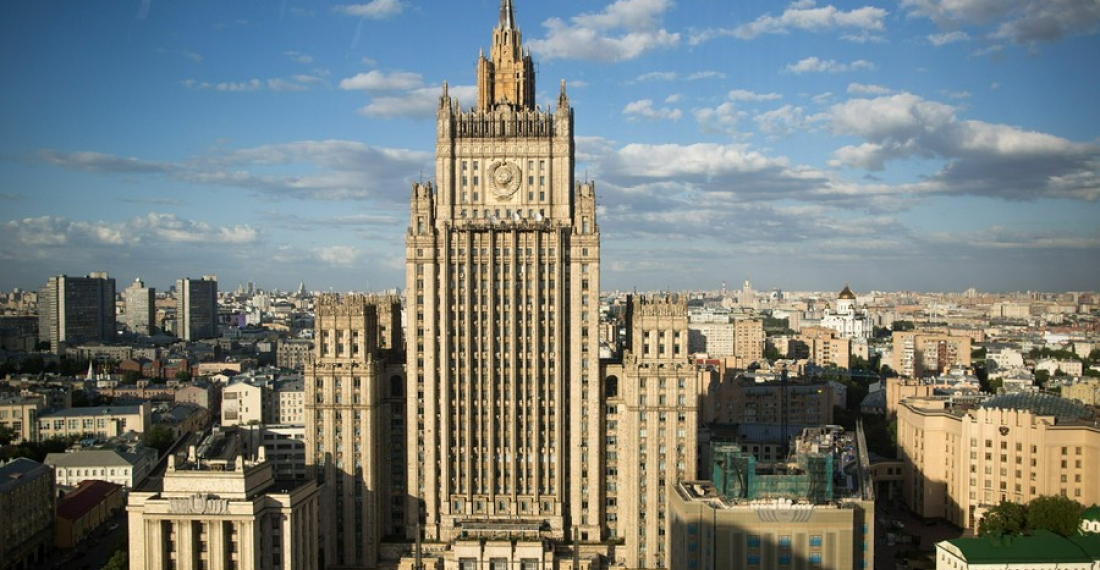There appears to be some confusion in Moscow about how to handle Russia's future relations with the European Union. The press secretary of Russian president Vladimir Putin has been obliged to intervene to explain comments made earlier by Russian foreign minister Sergei Lavrov that appeared to threaten the EU with a break in relations. Peskov said they had been presented by the media out of context.
Dmitry Peskov told reporters on Friday, commenting on the words of Russian Foreign Minister Sergei Lavrov, that Moscow is ready to sever ties with the EU if Brussels imposes sanctions that create risks for sensitive sectors of the Russian economy. Peskov insisted these comments had been "presented by the media out of context." According to the Kremlin spokesman, "this is a big mistake of the media, this is a mistake that changes the meaning."
“The point is precisely that we do not want this [breaking ties with the EU], we want to develop relations with the European Union. But if the European Union follows this path [imposing sanctions with a risk for the Russian economy], then yes, we will ready, because you have to be prepared for the worst," explained the press secretary of the Russian president. "This is what the minister was talking about. And the meaning was distorted and this sensational headline was presented in such a way that Russia would almost initiate a break in relations with the European Union," Peskov said.
According to the Kremlin spokesman, Lavrov's words do not require "any confirmation". "Of course, if we are faced with an extremely destructive line that damages our infrastructure, our interests, then, of course, Russia must be prepared in advance for such unfriendly steps," Peskov said. "The point is that we must be ready for some restrictions, for some restrictions and other unfriendly manifestations. We must be self-sufficient, we must ensure security in the most sensitive strategic areas, we must be ready to replace all that , which we can be deprived of, in case madness prevails, and such unfriendly manifestations [from the EU] will take place, "the press secretary of the Russian leader explained. Peskov noted that in the EU "there are voices that, perhaps, can only be listened to with dismay, but there are also sober voices", citing this week's debate in the European Parliament as an example.
This is the latest twist in a saga that has been playing out over the last two weeks as Russian diplomacy has tried to take an aggressive approach to criticism from western governments and politicians about the case of Alexei Navalny and the clampdown on peaceful protests. Lavrov made harsh comments last week during separate visits by the Chairman in Office of the OSCE, Swedish foreign minister Ann Linde, and the EU High Representative, Josep Borrell. Moscow also expelled three European diplomats during the same period. Some EU governments and politicians criticised Borrell for travelling to Moscow in the first place.
commonspace.eu political editor, in a comment first published in our sister publication, the weekly newsletter Caucasus Concise, on Thursday (11 February), said Borrell's visit to Moscow was necessary, but the ambush laid by Lavrov could have been avoided:
The visit to Moscow of EU High Representative Josep Borrell was far from smooth. Apart from the difficult talks, Russia chose the exact moment of Borrell’s meeting at the Russian foreign ministry to expel three European diplomats. On his return, Borrell faced criticism from some MEPs and some of the member states for going to Moscow at all, at a time when Russia appears to have embarked on a new wave of internal repression. They are wrong. Diplomacy needs to continue and, in fact, accelerate in times of crisis, and this is a time of crisis in EU-Russia relations.
What could have been avoided, however, was the ambush craftily prepared by Russian foreign minister Sergei Lavrov. The choreography of the visit had to be much better managed, and the messaging before and after much more consistent. In the days before the visit there were plenty of indications that the Russians were up to no good. They even had a dress rehearsal, a few days before Borrell’s arrival, when Ann Linde, the Swedish Foreign Minister, visited in her capacity of Chairperson-in-Office of the OSCE.
There was something eerily similar in the demeanour of both Linde and Borrell as they emerged from the talks with Lavrov to speak to the media. Both appeared as if they had just seen a ghost. In fact, they had only seen Lavrov’s true face. He had already warned that the time of diplomatic niceties was over, when on the eve of Borrell’s visit he had said “Honey is sweet, but the bee stings. Those who take our polite manners for a sign of weakness are making a big mistake.” It seems Borrell fell victim of Lavrov’s sting.
It was a long week for EU-Russia diplomacy, but whilst Linde could be excused for being caught in the ambush on Monday, Borrell should have by Friday been forewarned of what was to come, and better prepared for Lavrov’s sting. This raises questions about the political antennae of the European External Action Service when it comes to the Eastern neighbourhood, From the Ukraine Maidan crisis in 2014, to the Karabakh War in 2020, and now this, there appears to be a failure to understand and react fast enough to unfolding crisis. This is an institutional weakness, that if not addressed, others will abuse again in the future.
Related content: Borrell sailing straight into a Russian storm






